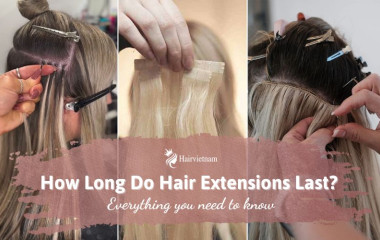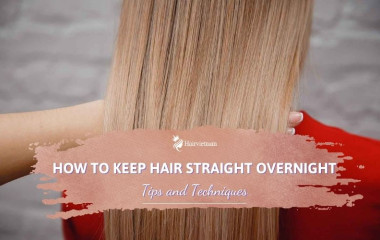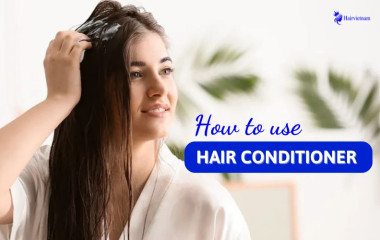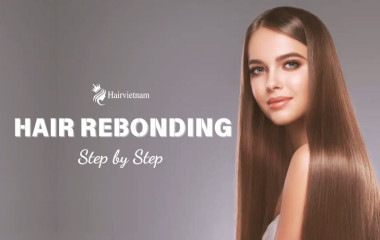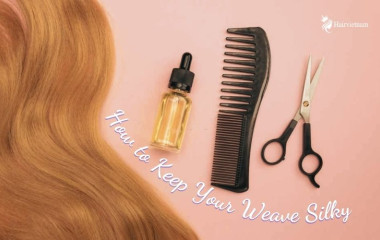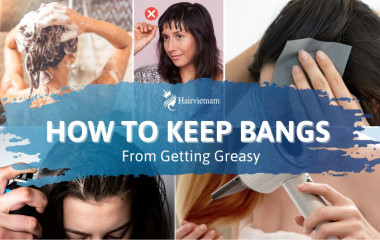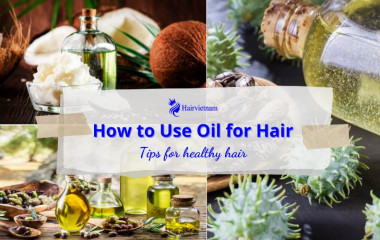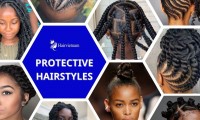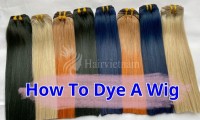Why is my Hair Falling Out? How to Stop Hair Loss Effectively
22/01/2024
Content
Experiencing persistent hair loss can lead to flat, lifeless locks, impacting your daily life and causing concern. Why is my Hair Falling Out? How to Stop Hair Loss Effectively? Join us at HairVietNam to delve into the details and explore comprehensive solutions for maintaining a healthy, vibrant mane.
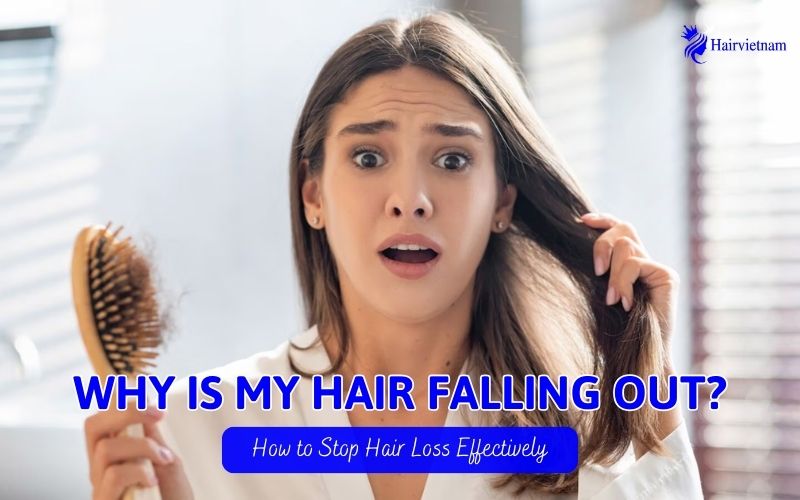
In addition, male-pattern baldness, which is hereditary, can lead to hair loss as hormonal components change with age.
A lack of protein in your diet can lead to hair shedding within just 2-3 months. Excessive sugar intake can also contribute to hair loss, as it is linked to type 2 diabetes, causing an overproduction of sebum. Therefore, gaining a thorough understanding of your diet is essential to ensure proper nutrition and minimize the risk of hair loss.
Regularly pulling your hair too tightly can contribute to hair loss. Choosing hairstyles like tight ponytails or braids that exert excessive tension on the hair may damage the hair follicles. Similarly, styling methods involving chemical treatments or heat, such as curling, coloring, or straightening, can result in hair damage, leading to thinning and hair loss.
Pregnancy often brings hormonal shifts, especially in estrogen levels, contributing to postpartum hair loss. Typically, during the final trimester, elevated estrogen levels result in thicker and more vibrant hair. However, after childbirth, a decline in estrogen levels can interrupt hair growth, leading to temporary hair loss, which is a normal occurrence.
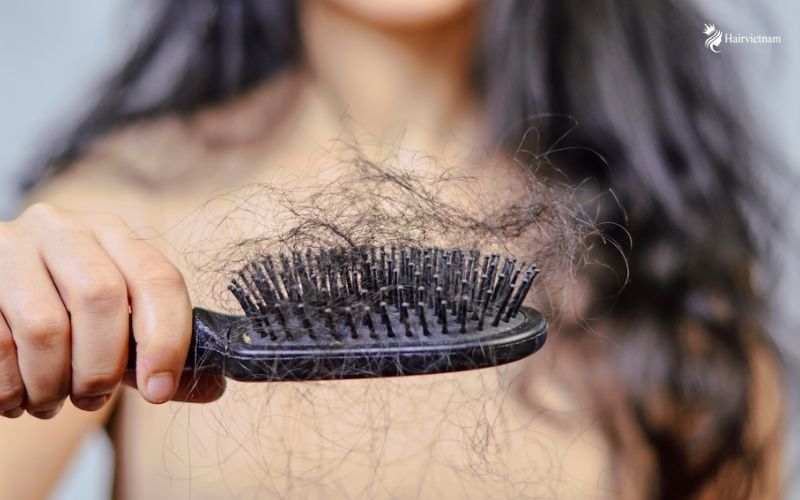
How long does Postpartum Hair Loss last?
How to stop postpartum hair loss? Postpartum hair loss may persist for up to 6 months, with most individuals experiencing a natural recovery to their original hair thickness. If, after a year, your hair doesn't return to its initial density, seeking advice from dermatological experts is recommended.
Normally, you'll notice more hair coming out during a hair wash and less during regular brushing. However, if you find that your hair continues to fall out excessively after washing, it might be a cause for concern.
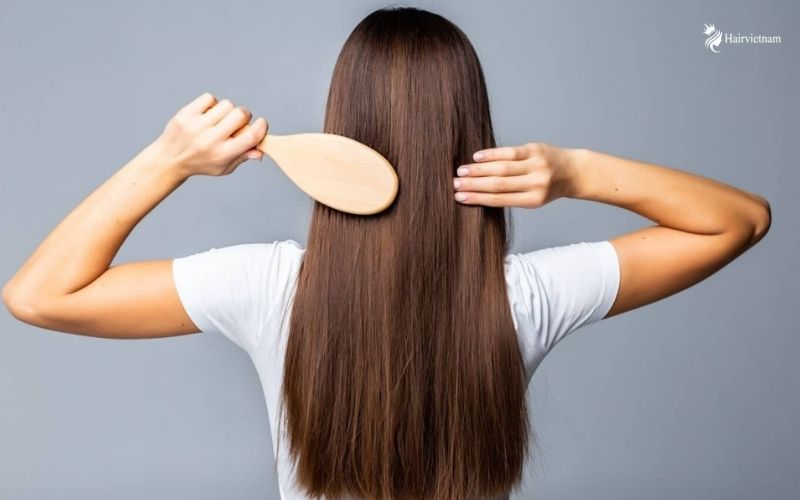
How to Stop Hair Loss Effectively
Certain vitamins and antioxidants found in food contribute to the natural strength of your hair. You can supplement your diet with iron-rich foods such as lean beef, leafy greens, legumes, grains, and omega-3-rich foods like salmon, tuna, chia seeds, egg yolks, walnuts, or protein-rich sources such as lean meat, eggs, and seafood.
Adequate water intake is also crucial in maintaining a balanced diet. Additionally, be mindful of limiting your intake of sugary foods for optimal results.
To maintain healthy hair, it's best to avoid the use of chemicals and hair dye. When shampooing, use a nourishing conditioner to promote a healthy scalp and stimulate hair growth.
While swimming, wearing a swim cap is essential to prevent direct exposure to chlorinated water, which can cause breakage. Additionally, prolonged exposure to sunlight or wind warrants the use of a protective hat to prevent hair from becoming dry and prone to breakage.
If you wish to change your hairstyle without affecting your natural hair, Hair Extensions become an irresistible option. HairVietNam Factory offers a diverse range of Vietnam human hair extensions in various styles, from bone straight to wavy and curly, with impressive fashionable colors. Contact us for expert advice and transform your look today.
1. Why is my Hair Falling Out so much?
Hair loss can result from a variety of factors, including issues related to stress, nutritional deficiencies, or underlying medical conditions.
Genetics
Hair loss can be a result of genetic factors or an imbalance in androgen hormones, leading to male-pattern baldness. While hereditary hair loss may not be completely treatable, you can take steps to slow down the process and encourage hair regrowth.Age
As you age, it's natural for your hair to gradually become thinner, resulting in a slower growth rate. Unlike androgenetic alopecia, hair loss due to aging is not influenced by hormones. Instead, it's a consequence of the aging process, causing hair follicles to cease growth, leading to gray hair, and eventually resulting in hair loss.Stress
Hair loss can happen when you're feeling stressed or anxious. That's why new moms often notice more hair falling out. The key is to change how you feel. Try doing some easy exercises, adjust your lifestyle, relax, and chat with friends to get rid of your worries.Hormonal Changes
Hormonal imbalances can result in issues like hair thinning and baldness. Typically, upon entering menopause, hair may start to thin due to a decrease in estrogen levels. Women dealing with polycystic ovary syndrome (PCOS) or using birth control pills may also experience hair loss around the crown and frontal scalp.In addition, male-pattern baldness, which is hereditary, can lead to hair loss as hormonal components change with age.
Nutrient Deficiency
To ensure comprehensive bodily development, it's crucial to provide your body with the necessary nutrients. Prolonged nutritional deficiencies can result in hair loss. Certain vitamins like Biotin, vitamin B, Protein, zinc, may play a role in hair loss issues.A lack of protein in your diet can lead to hair shedding within just 2-3 months. Excessive sugar intake can also contribute to hair loss, as it is linked to type 2 diabetes, causing an overproduction of sebum. Therefore, gaining a thorough understanding of your diet is essential to ensure proper nutrition and minimize the risk of hair loss.
Thyroid Disorders
The thyroid gland plays a vital role in producing hormones that regulate heart rate, body temperature, mood, and digestion. When the thyroid gland faces issues, it can lead to hormonal imbalances affecting the entire body. People with thyroid conditions may experience disruptions in thyroid function, hindering new hair growth, resulting in thinning hair, and, in some cases, leading to hair loss.Styling Habits
Regularly pulling your hair too tightly can contribute to hair loss. Choosing hairstyles like tight ponytails or braids that exert excessive tension on the hair may damage the hair follicles. Similarly, styling methods involving chemical treatments or heat, such as curling, coloring, or straightening, can result in hair damage, leading to thinning and hair loss.
Learn More: How to Get Fluffy Hair
2. How long does Postpartum Hair Loss last?
Pregnancy often brings hormonal shifts, especially in estrogen levels, contributing to postpartum hair loss. Typically, during the final trimester, elevated estrogen levels result in thicker and more vibrant hair. However, after childbirth, a decline in estrogen levels can interrupt hair growth, leading to temporary hair loss, which is a normal occurrence.

How long does Postpartum Hair Loss last?
How to stop postpartum hair loss? Postpartum hair loss may persist for up to 6 months, with most individuals experiencing a natural recovery to their original hair thickness. If, after a year, your hair doesn't return to its initial density, seeking advice from dermatological experts is recommended.
3. How much Hair Loss is normal in the shower?
Hair loss while showering may cause concern, but it is often quite normal. On average, a person may shed between 50-100 strands of hair daily, depending on hair density. Those with short and thin hair tend to experience less shedding, while individuals with thick and long hair may lose around 150-200 strands during each shampoo.Normally, you'll notice more hair coming out during a hair wash and less during regular brushing. However, if you find that your hair continues to fall out excessively after washing, it might be a cause for concern.
4. How to Stop Hair Loss Effectively
To combat hair loss, you have the option of choosing methods that encourage hair regrowth or exploring alternative treatment approaches.
How to Stop Hair Loss Effectively
Using Anti-Hair Loss Shampoo
Hair loss can occur due to clogged hair follicles on the scalp. Using a dedicated anti-hair loss shampoo helps clean out these follicles from dead cells, promoting the overall health of your hair naturally.Scalp Massage
Scalp massage is a method that stimulates hair follicles, reducing the risk of hair loss. If you consistently massage your scalp for about 4 minutes each day over a period of 24 weeks, your hair may become thicker and healthier, effectively enhancing overall hair quality.Nutritional Balance
Make positive changes to your diet to foster the well-being of your hair. Prioritize a diverse selection of vegetables, fruits, whole grains, lean proteins, and healthy fats in your daily meals.Certain vitamins and antioxidants found in food contribute to the natural strength of your hair. You can supplement your diet with iron-rich foods such as lean beef, leafy greens, legumes, grains, and omega-3-rich foods like salmon, tuna, chia seeds, egg yolks, walnuts, or protein-rich sources such as lean meat, eggs, and seafood.
Adequate water intake is also crucial in maintaining a balanced diet. Additionally, be mindful of limiting your intake of sugary foods for optimal results.
Exercise Routine
Incorporating a healthy lifestyle is essential for lifting your mood and addressing issues like menopause, weight gain, and insomnia. Choosing an appropriate form of exercise helps balance hormones and promotes robust hair growth.Healthy Hair Care Habits
Regular use of heat-producing tools such as hair dryers or straighteners can result in dry and brittle hair. Additionally, Hair extensions and frequent styling may also contribute to hair weakness and breakage.To maintain healthy hair, it's best to avoid the use of chemicals and hair dye. When shampooing, use a nourishing conditioner to promote a healthy scalp and stimulate hair growth.
While swimming, wearing a swim cap is essential to prevent direct exposure to chlorinated water, which can cause breakage. Additionally, prolonged exposure to sunlight or wind warrants the use of a protective hat to prevent hair from becoming dry and prone to breakage.
Conclusion
Understanding the root causes of hair loss is the key to overcoming this issue and nurturing thick, healthy hair. Protect your hair by minimizing styling and reducing the use of chemicals.If you wish to change your hairstyle without affecting your natural hair, Hair Extensions become an irresistible option. HairVietNam Factory offers a diverse range of Vietnam human hair extensions in various styles, from bone straight to wavy and curly, with impressive fashionable colors. Contact us for expert advice and transform your look today.





_cr_380x240.jpg)
